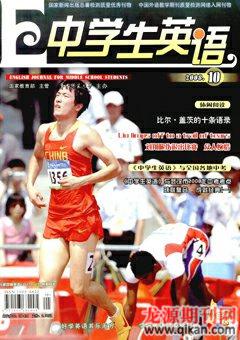新目标英语八年级(上)Unit 4知识要点归纳总结
董娟娟
【单词识记】
1. far adj. 远的,遥远的; 比较级farther,最高级farthest。例如:
His grandparents live in a far village. 他的祖父母住在一个遥远的村庄。
The park is a little far from here. 公园离这儿有点远。
2. quick adj. 快的,快速的;quickly adv.快地,快速地。例如:
He is a quick walker. 他是一个走路快的人。
He dressed quickly and went out. 他迅速地穿戴好便出去了。
3. early adj. 早的,提早的;反义词是late。例如:
in the early summer 初夏;in the late afternoon 傍晚
4. north n. 北部,北方; northern adj. 北部的,北方的。例如:
Hebei Province is in the north of China. 河北省在中国的北部。
He has traveled in northern provinces. 他游历了北方各省。
5. ill adj. 生病的,不健康的; illness n.疾病。例如:
I was ill yesterday, but Im better today. 我昨天病了,但今天好多了。
The child has suffered from illness for two years. 这个孩子已经病了两年了。
6. worry v. 担心,担忧,焦虑;worried adj. 担心的,担忧的,焦虑的。例如:
What is worrying you? 什么事使你担心?
You dont have to worry about that. 你不必为那件事担忧。
You look worried. 你看上去很焦虑。
7. stop n. 车站 【同义词】 station。stop一般指被指定在路边的公共汽车站(bus stop),station一般指“火车站(railway station)”或“长途汽车站(bus station)”。例如:
Where is the nearest bus stop? 最近的公共汽车站在哪儿?
I met your father at the railway station yesterday. 我昨天在火车站看到你父亲。
stop还可用作动词,意思是“停止”。例如: Dont get off until the bus stops. 公共汽车停了才能下车。
8. must v. (表示肯定推测) 一定,当表达“否定的推测”时,要用cant(不可能),而不用mustnt (不必) 。例如:
Our teacher must be in the office. 我们的老师一定在办公室里。
That cant be true. 那不可能是真的。
【短语小结】
1. by bus / boat乘公共汽车/小船
2. how far 多远
3. depend on 视……而定,决定于
4. look at 看
5. have a quick breakfast 匆匆吃早饭
6. leave for 离开去
7. be different from... 与……不同
8. a number of 许多
9. get to 到达
10. in other parts of the world 在世界的其它 地方
【句子运用】
1. —How does Bob get to school? 鲍勃是怎样到学校的?
—He takes the train. 他乘火车。
2. —How long does it take?这要花费多少时间?
—It takes about 25 minutes to walk and 10 minutes by bus. 大约步行25分钟,乘公共汽车10分钟。
3. —How far is it from your home to school? 从你家到学校有多远?
—Its three miles. 三英里。
4. Then the early bus takes him to school. 然后早班车把他带到学校。
5. That must be a lot more fun than taking a bus. 那肯定比乘公共汽车有趣得多。
6. In North America, not all students take the bus to school. 在北美,并非所有的学生都乘公共汽车去上学。
7. What do you think of the transportation in your town? 你认为你们城镇的交通运输怎么样?
8. I need to see my friend. 我需要看我的朋友。
9. She is ill in the hospital. 她生病住院了。
10. Lin Feis home is about 10 kilometers from school. 林飞的家离学校大约10公里远。
11. In China, bikes and buses are the most popular means of transportation. 在中国,自行车和公共汽车是使用最广泛的交通工具。
12. Dont worry. 不要担心。
13. Let me look at your map. 让我看看你的地图。
【语法在线】
1. how 引导的特殊疑问句。
2. 乘某种交通工具的表示方法。
【能力迁移】
1. 谈论怎样去某地。
2. 谈论去某地要花费多少时间。
3. 询问离某地有多远。

